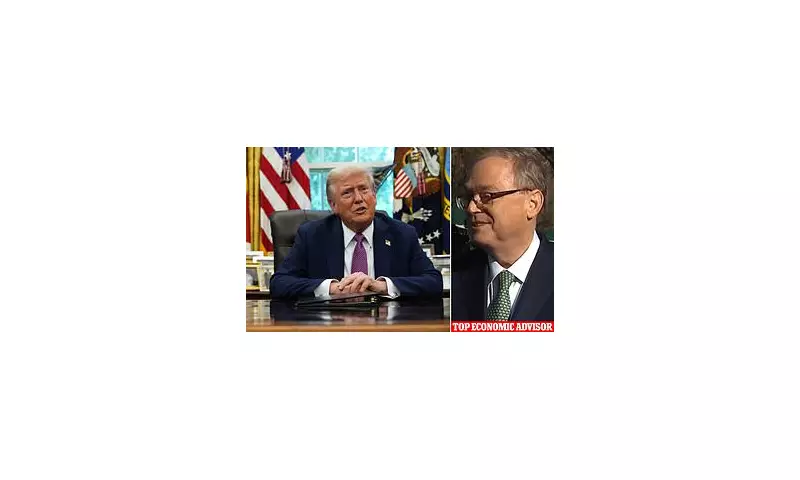
Former President Donald Trump has proposed sending $2,000 rebate checks to American households, with his top economic advisor confirming the scheme could be funded entirely through revenue generated by Trump's controversial tariff policies.
Economic Advisor Backs Rebate Plan
Kevin Hassett, director of the National Economic Council, revealed during a press conference that the federal government has accumulated sufficient funds from Trump's tariff policy to finance the rebates without drawing from the main federal budget. However, Hassett clarified that despite having the necessary funds, the administration lacks authority to distribute the checks without legislative approval from Congress.
When questioned about whether the administration was collaborating with Congress to pass required legislation, Hassett stated they were "actively studying the matter and getting the numbers straight so the president has all the choices he needs to decide what to do." He made these comments during a briefing held last Thursday.
Congressional Hurdles and Republican Skepticism
The proposal faces significant obstacles in Congress, where Republicans maintain a slender majority following the midterm elections. Several fiscally conservative representatives have expressed doubts about the rebate scheme.
Representative Ryan Zinke voiced strong concerns, telling Politico: "We're $36, $37 trillion in debt. To me, I think our bus is full. If you want to add something, then take something off the bus."
Other Republican representatives expressed similar reservations. Tim Burchett stated he would need to assess how the rebates would affect the national debt before supporting the legislation, while Andy Harris admitted he hadn't fully committed to examining the proposal, noting "If I paid attention to every single thing the president said, I'd have no other time in my day."
Administration's Commitment and Timeline Uncertainties
During a White House press briefing, Press Secretary Karoline Leavitt confirmed that President Trump remains "committed" to sending checks to Americans. She explained that Trump's economic team is currently investigating all legal avenues to facilitate the payments.
Despite this commitment, Leavitt couldn't provide a concrete timeline for when Americans might receive the rebates, indicating the administration would share updates as they become available. The uncertainty extends to whether the administration can ultimately deliver on Trump's proposal.
Trump initially floated the rebate idea in a Truth Social post dated November 9, where he wrote that a dividend of at least $2,000 would be paid to lower and moderate-income earners, attributing this possibility to the success of his tariff policies. In characteristic style, he described opponents of his tariff approach as "fools" and celebrated America's position as the world's richest and most respected nation.
The last comparable federal rebate programme occurred during the COVID-19 pandemic under the Biden administration, which Republicans subsequently criticised for contributing to record-high inflation. Inflation has since decreased from its 2022 peak but remains around three percent according to recent US Bureau of Labor Statistics data.
Meanwhile, Trump's tariff policy itself faces legal challenges, with two cases recently heard by the Supreme Court questioning the president's authority to implement emergency powers for imposing these taxes. An analysis from the Tax Foundation concluded that tariffs typically raise prices and reduce available goods for US businesses and consumers, potentially leading to lower income, reduced employment, and diminished economic output.
Nevertheless, the Trump administration maintains that tariffs have strengthened the economy, issuing a press release last Friday claiming prices have decreased since Trump assumed office.





